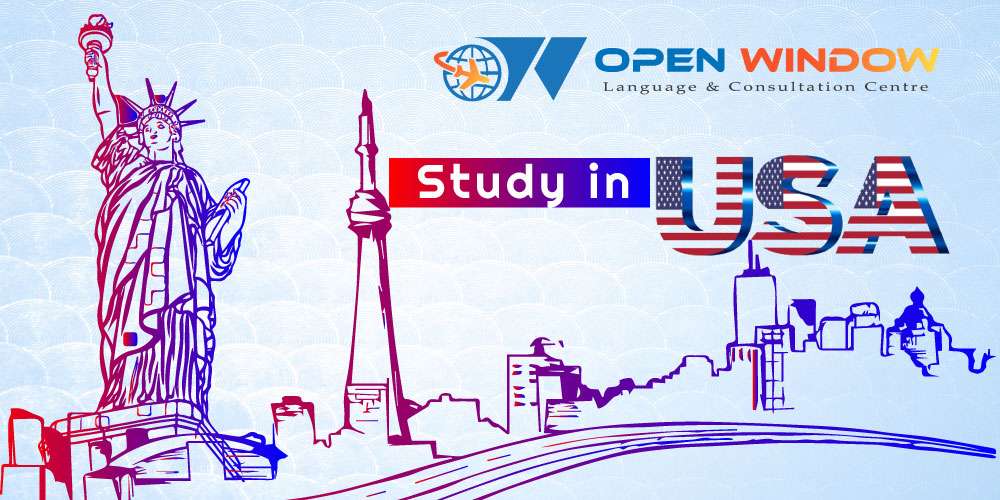Study in France
Study in France – France is a popular destination for international students who are looking to study in Europe. The country is renowned for its high-quality education system, rich cultural heritage, and scenic beauty. French universities offer a wide range of programs, from humanities and social sciences to engineering and technology, making it a suitable choice for students with diverse interests and academic backgrounds. Additionally, France is home to some of the world’s most prestigious institutions, such as Sorbonne University and École Polytechnique, attracting students from all over the world.
In France, higher education is divided into public universities, grandes écoles, and specialized schools, providing students with various options to choose from. French universities offer undergraduate, graduate, and postgraduate programs, as well as professional courses and vocational training. The medium of instruction is mostly French, although many universities also offer programs in English.
Apart from the academic opportunities, studying in France also provides students with a chance to experience French culture and lifestyle. The country is known for its art, music, fashion, and cuisine, making it an exciting and enriching destination for students.
International students are also allowed to work part-time while studying in France. This enables them to gain valuable work experience, earn money to support their education, and improve their French language skills. However, there are certain regulations that students must follow, such as obtaining a student work permit and not working more than 20 hours per week during the academic term.
Why Study in France?

1. Very affordable tuition fees
If you come from the European Union (EU) or the European Economic Area (EEA), you won’t pay more than 800 EUR per academic year; this applies to degrees at all levels (Bachelor’s, Master’s, PhD).
In some cases, non-EU/EEA students enjoy the same benefits, but in others they do pay higher tuition. Even so, studying in France still remains less expensive than in other countries, such as the USA, the UK, Canada, Australia, etc.
2. The number of English-taught degrees is growing
To attract more international students, both public and private universities in France have been increasing the number of English-taught study programmes in their academic offer.
There are over 1,500 courses taught in the English language, and the number is growing every year.
3. Excellent opportunities to learn or improve your French
Although English remains the primary international language in many sectors, you shouldn’t overlook French. It is the third most common business language and the official language in over 30 countries worldwide.
Remember that people who speak at least two foreign languages have better chances to get higher salaries or apply for positions at large multinational corporations and institutions.
French is also famously known as “the language of love” (la langue de l’amour), and we must admit, there’s something quite special about the words, the sounds, the accents, and how everything blends together beautifully.
4. France is a hub for research and innovation
Many French higher education institutions invest a lot of resources in their research facilities and staff. If you see yourself spending long hours in laboratories, conducting experiments, and working on humanity’s next breakthrough, France is the place to go.
Over 64 Nobel Laureates and 15 Fields Medals highlight the importance that France places on research and progress.
5. Visit famous tourist attractions
From human-made wonders to natural beauties, there’s so much to see in the Hexagon (popular nickname for France).
You can enjoy the French Riviera, explore the Prehistoric Cave Paintings in Lascaux, take a photo from the top of the Eiffel Tower, and quench your thirst for history at the Louvre Museum — these and many other attractions have transformed France into one of the most popular tourist destinations in the world.
How to Apply in France
If you’ve decided to study a Master’s degree at a university in France, you will have to gather the right documents to prove that you fit the university requirements. Provide complete personal information, previous qualifications, financial information, and a personal statement.
What documents do I need to provide to apply in France?
The documents and forms you will have to complete and upload are:
- A pre-registration certificate provided by the university;
- The Campus France authorization;
- Your Passport or ID card;
- Some ID/passport type photos;
- Copies of graduation diplomas and their French translation;
- A registration fee;
- Social security fees;
- A civil liability certificate;
- A copy of your European health insurance card (only if you’re an EU citizen, obviously);
- CV;
- A motivation letter;
- English (or French) language certificate;
- Your transcript of records, with a minimum 3.0 cumulative GPA (or equivalent);
- Copies of diplomas (if not available, a certificate stating that you graduated);
- Proof that you can fund your stay in France (with a minimum of 800 EUR/month).
Prove your language skills

People speak French in France. Yes, we know, we just blew your mind! Nonetheless, they do, and, if you want to speak it with them, as well, you should prepare a proficiency certificate, like DELF, DALF, or TCF.
If you don’t really care about the idea of studying in French, then, fortunately, you can pick an English degree. Still, you will have to present an English proficiency diploma. This one can be:
- TOEIC
- TOEFL
- IELTS
Application deadlines for France
In France, you can apply in two batches.
First, if you want to apply for the fall admission, then be sure you mark the 1st of February and the 1st of April in you calendar. And, sometimes, know that this date can be extended if there are still some available spaces.
If the cold bothers you, then check out the spring admission session, which ends on the 15th of September. And, of course, if there are still available spaces, it can be prolonged.
Living in France

Let’s take a closer look at tuition and living expenses in France:
Tuition fees for universities in France
In France, they have both public and private universities and different tuition fees for each. Tuition fees also change based on your nationality, what you choose to study and what your education level will be.
Public universities
- Bachelor’s students: 170 EUR/year (Engineering and Medicine degree can cost between 500–700 EUR/year)
- Master’s students: 260 EUR/year
- PhD students: 396 EUR/year
Keep in mind that the tuition fees listed above usually only apply to EU/EEA students. Non-EU/EEA citizens can expect to pay higher tuition.
Private universities
- Grande écoles: 500–10,000 EUR/year regardless of the degree type
- Private universities: 1,500–20,000 EUR/year regardless of the degree type
- Business schools: 5,000–30,000 EUR/year regardless of the degree type
Living costs in France
Depending on whether you find yourself in a big city or not, the cost of living in France can be quite different. However, compared to the rest of Europe, France can be quite pricey. In general you should prepare about 700–1,200 EUR/month to cover your student living costs. In more expensive cities, like Paris, you’ll need around 1,200–1,800 EUR/month.
Here is a breakdown of the costs to expect in France:
- Rent (student residence halls vs private rent): 200–400 vs 400–700 EUR/month
- Utilities: 150–200 EUR
- Three-course meal for 2 people at a mid-range restaurant: 50 EUR
- Milk: 0.98 EUR
- Loaf of bread: 1.41 EUR
- Monthly transportation pass (metro, bus, train): 56 EUR
- Cappuccino: 2.82 EUR
Work while study in France

If you are a foreign student and want to work while studying in France, you need to obtain a work permit called “Autorisation Provisoire de Travail” (APT).
The APT allows students to work up to 964 hours per year, which is equivalent to 60% of the legal working hours in France. To be eligible for an APT, you need to be enrolled in a recognized educational institution in France and hold a valid residence permit.
To obtain an APT, you must have a job offer from an employer in France. Your employer will then apply for the APT on your behalf through the French Ministry of Labour. Once approved, you will receive the APT, which will allow you to work part-time during the academic year and full-time during the summer holidays.
It’s important to note that the APT is only valid for the duration of your studies in France, so you will need to apply for a new one each year. Additionally, some restrictions apply to certain types of work, such as internships and temporary contracts.
Overall, obtaining an APT is a great way to gain work experience, improve your language skills, and earn some extra money while studying in France.
France At a Glance
| Course Duration | Intake | Application Fee | Requirements |
| 3 years (Bachelors) 1/2 Years (Masters) | January, September, October | 0 to 150 (EUR) | IELTS Waiver possible Academic- Above 55% |
| Language Proficiency | Tution Fee (Yearly) | Living Cost (Yearly) | Visa Application |
| IELTS-5.5+, TOEFL-70+ Waiver Possible | 7000 to 25000 (EUR) | 7200 to 9600 (EUR) | 99 (EUR) |
| Air Ticket | Processing Time | Part Time Work | Post Study Work Permit |
| 200000 to 290000 (BDT) | 3-6 months | 20 Hrs | N/A |
Our Affiliated University List
| Sr No | University Name | City |
| 1 | SKEMA Business School, | Paris |
| 2 | Ecole Nationale Supérieure des Mines d’Alès – | IMT Mines Alès |
| 3 | NEOMA Business School, | Rouen |
| 4 | Burgundy School of Business, | Dijon |
| 5 | Rennes School of Business, | Rennes |
| 6 | Excelia Group, | La Rochelle |
| 7 | ESSCA School of Management, | France |
| 8 | Institut supérieur d`électronique de Paris (ISEP), | Paris |
| 9 | EPITA – School of Engineering and Computer Science, | Paris |
| 10 | Institut supérieur du commerce de Paris – ISC, | Paris |
| 11 | EM Normandie Business School, | Paris |
| 12 | Le Cordon Bleu, | Paris |
| 13 | De Vinci Higher Education | |
| 14 | College de Paris, | Paris |
| 15 | Queen Mary University of London, | Paris |
| 16 | Istituto Marangoni Fashion and Design School, | Paris |
| 17 | The American Business School of Paris, | Paris |
| 18 | Ecole Ducasse, | Paris |
| 19 | Berlin School of Business and Innovation, | Paris |
| 20 | Airways Aviation Academy Montpellier, | France |
| 21 | IDRAC Business School, | France (India Campus) |



